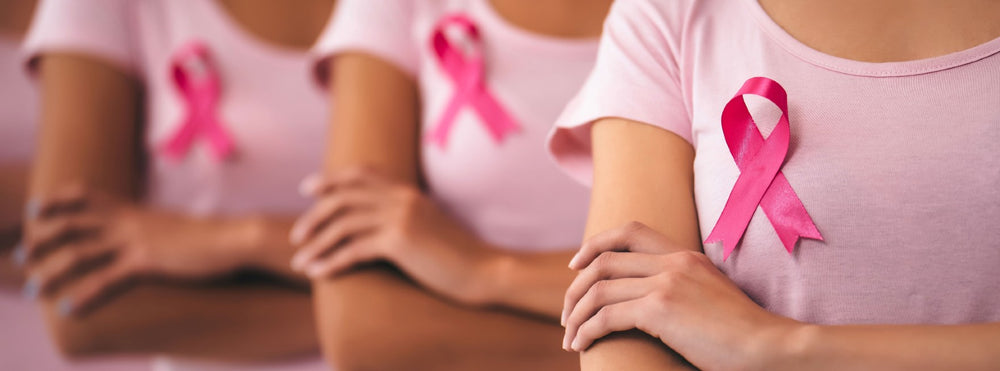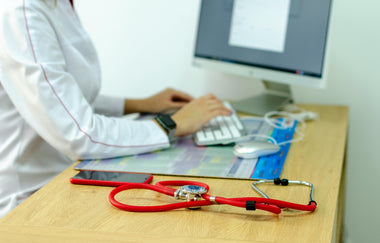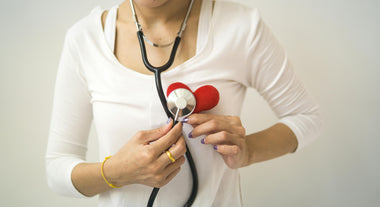What could breast cancer treatment do to your heart?

October is breast cancer awareness month.
However, I think we should be on guard for this condition year round -- since it’s such a common malignancy and its effects can be so devastating. According to the American Cancer Society, breast cancer accounts for about 30% (or 1 in 3) of all new female cancers each year. That means nearly 300,000 women will be diagnosed with invasive breast cancer in 2023 and nearly 45,000 will die of the disease. It is estimated that approximately 4 million women in the US have been affected by breast cancer, meaning they have been treated for it or are undergoing active therapy.
Now, if you’re one of those 4 million women, chances are your mind might not be focused on heart disease.
But it should be. Because heart disease remains the number one killer of women – including those that have been diagnosed with breast cancer. This probably stems from the fact that there are several risk factors for both heart disease and breast cancer that overlap, such as diet quality, smoking, and obesity. And because breast cancer treatment can have a significant detrimental effect on cardiovascular health in general.
What exactly does breast cancer treatment have to do with your heart?
Many treatments designed to target breast cancer can also have toxic effects on the heart, and/or damage the heart muscle and blood vessels. Breast cancer patients may develop cancer treatment-related cardiac dysfunction (CTRCD) which may lead to heart failure, or they may develop other heart issues such as high blood pressure, arrhythmia, and progressive coronary artery disease.
Specifically, the effect on your heart depends on the type of breast cancer treatment. Here’s what you need to know:
If you’re getting chemotherapy, be aware that certain drugs may weaken your heart, increase blood pressure readings and raise the risk of blood clots.
If you need radiation, be aware that when delivered to the chest or breast, radiation increases the risk of early coronary artery disease due to radiation-mediated damage to blood vessels. After all, coronary arteries are not far from breast tissue and the chest wall. (The good news here is that this is becoming less common as shielding and radiation techniques in general have improved.)
If you’re using hormonal therapy, be aware that anti-estrogen medications can make your lipid profiles worse.
Of course, not everyone undergoing cancer treatment will experience issues with their heart. And none of this means you should avoid breast cancer treatment just because deleterious heart effects are possible. It simply emphasizes that you should talk to your doctor about precautions that should be taken. Monitoring your heart before, during and after breast cancer therapy can help keep your risk of heart disease in check. In fact, there are even doctors trained specifically in this area, called cardio-oncologists.
For example, if you’re preparing to start breast cancer treatment, a cardio-oncologist may recommend that you take steps to get any elevated blood pressure readings or cholesterol numbers under control – including using medications to achieve blood pressure and lipid goals. That will help lower the risk of heart damage from chemotherapy.
But you should also help yourself! The same lifestyle factors that support heart health, lower blood pressure and control cholesterol levels support breast health – and breast cancer therapy. Exercising regularly, losing weight if you need to, avoiding tobacco smoke, cutting way back on alcohol (eliminating it altogether, ideally) and eating a predominantly whole food plant-based diet have all been shown to make a big difference in breast cancer risk, treatment and recovery. Which means Step One Foods, designed to support healthy cholesterol levels and cardiovascular health in general, are also a good option for anyone about to undergo breast cancer treatment.
And an important side note here. Contrary to outdated concerns, phytoestrogens – like those found in soy and to some extent in flax – are perfectly safe in women with a history of breast cancer, those undergoing breast cancer treatment and those trying to prevent the disease. Estrogen-like compounds that are naturally present in plants have actually been found to be protective against getting the disease in the first place and for supporting breast cancer care. The pendulum has swung so much on this topic that breast surgeons and oncologists are starting to advocate for increasing soy consumption if you’ve been diagnosed with the disease.
Finally, men can get breast cancer too. Although only 1 out of 100 cases of breast cancer occurs in men, the disease appears to be far more deadly in them. This is probably because men don’t expect to get this type of cancer so it tends to get caught later, at a more advanced stage. Even though presenting clues are similar to those in women.
Symptoms to be on the lookout for, regardless of gender, include:
- A lump or swelling in the breast.
- Redness or flaky skin in the breast.
- Irritation or dimpling of breast skin.
- Nipple discharge.
- Pulling in of the nipple or pain in the nipple area.
If you are noticing any of these, please see your healthcare provider as soon as possible.

Tested & Proven Results.
- Cardiologist formulated
- Supported by over 500 publications
- Clinically-proven, in a double-blind randomized trial with Mayo Clinic and The University of Manitoba
80% of participants lowered their cholesterol in just 30 days. With just two servings per day, Step One Foods offers a proven-effective way to naturally lower LDL (bad) cholesterol.
Get heart health tips and articles like this, delivered right to your email.
New articles every week.
You may also like...

The Clock You Should Be Paying Attention To (But Probably Aren’t)

The LDL Chart Fueling Confusion Online - And What It Misses

You don’t need to avoid foods with cholesterol…except for these


